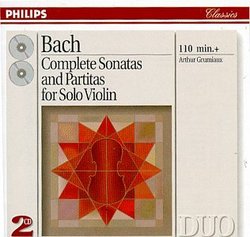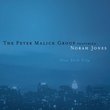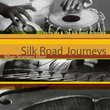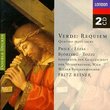| All Artists: Johann Sebastian Bach Title: Bach: Complete Sonatas and Partitas for Solo Violin Members Wishing: 0 Total Copies: 0 Label: Philips Release Date: 2/15/1994 Genre: Classical Styles: Chamber Music, Historical Periods, Baroque (c.1600-1750), Instruments, Strings Number of Discs: 2 SwapaCD Credits: 2 UPC: 028943873628 |
Search - Johann Sebastian Bach :: Bach: Complete Sonatas and Partitas for Solo Violin
 | Johann Sebastian Bach Bach: Complete Sonatas and Partitas for Solo Violin Genre: Classical
No Description Available. Genre: Classical Music Media Format: Compact Disk Rating: Release Date: 15-FEB-1994 |
Larger Image |
CD DetailsSynopsis
Product Description No Description Available. Genre: Classical Music Media Format: Compact Disk Rating: Release Date: 15-FEB-1994 Similarly Requested CDs
|
CD ReviewsMy favorite recording of a cornerstone of Western art. Bob Zeidler | Charlton, MA United States | 05/25/2001 (5 out of 5 stars) "The name Johann Sebastian Bach conjures up a multitude of musical vistas: Cantatas and oratorios, instrumental concerti, solo keyboard works, chamber music, and, ultimately, a handful of cornerstones of Western art: The B Minor Mass, The Well-Tempered Clavier, The Art of Fugue, the Suites for Unaccompanied Cello, and these Sonatas and Partitas for Solo Violin. By these five works alone, Bach's place in history is assured. Not that he needs my vote, or opinion for that matter, to decide the issue. Many words could be (and in fact have been) spilt over the issue of who are the best artists for Bach's solo instrumental works. For the keyboard works, it's often a case of "Glenn Gould vs. everyone else," and equally often, piano vs. harpsichord. For the cello suites, substitute Pablo Casals for Glenn Gould, and "never mind that Casals' approach wasn't `authentic'." Simply put, greatness is, well, greatness. For these solo violin works, after having heard many great violinists - of both "authentic" and "modern" persuasion - play them, I always come back to this Arthur Grumiaux recording as being my favorite. Grumiaux was nothing if not an elegant violinist, and he had a superb Stradivarius for an instrument. But, if you are thinking that elegance is short for "sounds too smooth for me," rest assured that Grumiaux does not round off the edges of these works. This is a bravura performance of such technical virtuosity that it would be easy to believe Grumiaux to have been a Bach specialist (which he was not, having a far wider repertoire). He simply played these masterpieces in the way that he believed in them: that they do in fact represent "a cornerstone of Western art." He doesn't shortcut the crags and the tough parts; he makes apparent the implied counterpoint written in the music; his intonation and articulation are flawless. And, on top of all that, he has an instrument that simply sings. A somewhat shorter version of all of the above: While perhaps not easy for the novice to grasp at first hearing, these works are of such sublime perfection as performed by Grumiaux that even the novice will surely be won over and revisit this performance again and again, each time bringing something new and fresh away from the performance. THIS, in a nutshell, is what this recording is all about. In the early 60's - when this Grumiaux recording was originally produced and released on two LP's - there were very few record companies that could compete with Philips on a "quality" basis, either in sound reproduction or in lack of surface and extraneous noise. I still have those LP's, and they still sound remarkably good. The quality of those Philips master tapes clearly contributed to the excellent sound on these CD's. The two-LP release also had quite a bit extra by way of liner notes which were not included in this CD release under review. Philips has this recording included in its "Philips 50" release schedule, a clear sign that it considers Grumiaux's Bach a high point in its recording history (as do I and the other uniformly-5-star reviewers here), and a possible sign that those original liner notes will be included when the "Philips 50" remastering reaches the market. But no need to wait that long. It's the music that matters. Bob Zeidler" Excellent and beyond M. Donahue | Elk Grove, CA USA | 05/11/2000 (5 out of 5 stars) "The Bach solo violin works as performed by the late Arthur Grumiaux will absolutely stop you in your tracks, clear the nonsense from your poor overloaded brain, and deliver you to celestial simplicity. Not kidding ! Of course, these are some of the most indescribable works ever written and many good artists have delivered up their beauty, but, as you (over a few listenings) tune in to the perfect pitch, flawless finger work and the warm feeling in the delivery, holy smokes ! The Stradivarius which Belgian artist A. Grumiaux owned and recorded with must be one of the loveliest-sounding violins ever to grace the world of recorded music. As they used to write about Mr. Grumiaux: he put exactly the right touch on every note. This is some direct-current electricity for your whole system, and you may need to sit and injest this in small doses at first ! Its definitely not your ordinary background classical fare for lite chatter and soothing reveries; this is the intensely beautiful language of a powerfully creative and emotional man of the 1700's speaking directly to us. Many of the other A.G. works are just as tasty and are highly recommended." Guitarist's perspective Bruce McKinnon | New Zealand | 08/18/2000 (5 out of 5 stars) "I first heard the Chaconne played on classical guitar when I was twelve and it has mesmerised and haunted me ever since. Probably the best version I have heard on guitar is performed by Narciso Yepes (Deutsche Grammophone I think) using a ten string instrument, the extra four strings used for resonance. If you love the work performed on violin, I recommend listening to the guitar version. Even though the guitar has a definite advantage handling the chords (they don't have to be all arpeggio), I have to admit that Grimeaux's performance is the last word. It will just blow you away. This CD is chelation therapy for the soul. In the Chaconne (and the other pieces) Bach seems to capture every human emotion and then some in the space of about fourteen minutes. The purity of Grimeaux's tone and phrasing astounds me every time I listen to these works. We better not broadcast this into outer space unless we want company."
|

 Track Listings (16) - Disc #1
Track Listings (16) - Disc #1








